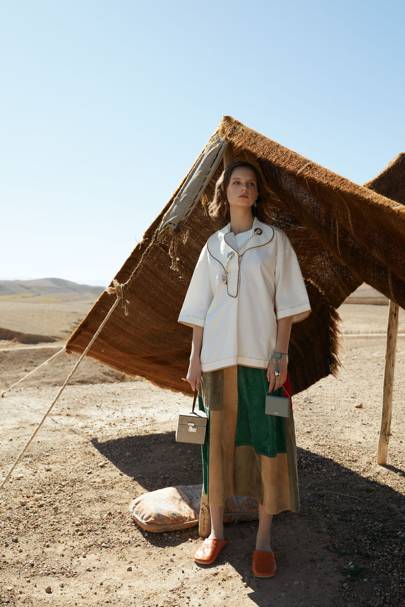Adidas, Reebok and Patagonia are the top-performing brands in a group of 200 of the largest fashion brands and retailers, according to the latest transparency report, which is published annually by non-profit campaign group Fashion Revolution and aims to assess brands across five key areas: policy and commitments, governance, supply chain traceability, supplier assessment and remediation.
Scoring 64 per cent out of a possible 250 points, Adidas, Reebok and Patagonia are closely followed by Esprit and H&M, who score 62 per cent and 61 per cent respectively. This is cause for celebration: it’s the first time since the FTI’s inception that brands have scored over 60 per cent, meaning that brands are making real efforts to become more transparent.
Luxury brands are becoming less opaque, too. Gucci and Bottega Veneta are among the highest-scoring luxury brands, and have achieved 100 per cent on criteria including “policy & commitments”, which involves answering questions such as “What are the brand’s social and environmental policies?” Meanwhile Dior and Marc Jacobs are among the biggest movers since 2018, with an improved performance of 22 per cent for the former, and 17 per cent for the latter.

A brand’s score is calculated by a number of factors: 70 out of the 200 brands, for instance, are publishing a list of their first-tier manufacturers. 38 brands are disclosing their processing facilities, where embroidering, printing, dyeing and finishing typically takes place. 55 per cent are publishing the carbon footprint of the company at its own sites (though only 19.5 per cent have published the carbon emissions throughout the supply chain).
While any brand's attempt to become more transparent should be applauded, these numbers are still frighteningly low. And there are far more worrying statistics buried in the report. Take the fact that, for all the emphasis on waste in the news at the moment, only 26.5 per cent of brands choose to describe what they are doing to reduce pre-consumer waste, such as dead stock and production samples. Furthermore, only 23.5 per cent of brands disclose that they currently offer their customers in-store or online recycling schemes (H&M has offered a garment collecting programme since 2013, and M&S has its Shwopping initiative, for example). And just 26 per cent explain how they’re investing in circular solutions to reduce textile waste.
"Hermès is currently the only luxury brand publishing a factory list and this is the principal area in which luxury is lagging behind the mainstream," says Carry Somers, founder and global operations director of Fashion Revolution. "Overall in this category, we have seen disclosure increase from an average score of 12.5 per cent three years ago to 35 per cent today. The disclosure of supplier factory lists is a foundational element of human rights due diligence. It is also a necessary first step towards accountability when labour and human rights violations occur, and helps brands better manage risk which can harm their reputation. We need to see luxury doing much better in this area."
It may be that many of the brands participating in the report are seeking to get their house in order before they publicise the results. Others simply do not possess the data about their own practices. Regardless: the world’s biggest brands need to take responsibility for the environmental and social impacts of the textile industry – and consumers need to push them towards full disclosure.
"Hermès is currently the only luxury brand publishing a factory list and this is the principal area in which luxury is lagging behind the mainstream," says Carry Somers, founder and global operations director of Fashion Revolution. "Overall in this category, we have seen disclosure increase from an average score of 12.5 per cent three years ago to 35 per cent today. The disclosure of supplier factory lists is a foundational element of human rights due diligence. It is also a necessary first step towards accountability when labour and human rights violations occur, and helps brands better manage risk which can harm their reputation. We need to see luxury doing much better in this area."
It may be that many of the brands participating in the report are seeking to get their house in order before they publicise the results. Others simply do not possess the data about their own practices. Regardless: the world’s biggest brands need to take responsibility for the environmental and social impacts of the textile industry – and consumers need to push them towards full disclosure.

No comments:
Post a Comment